#corybantic games
Text
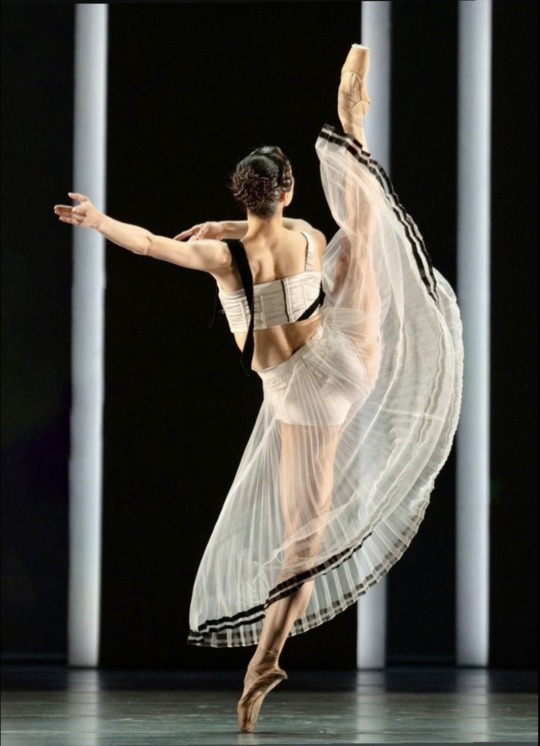
Fumi Kaneko
Corybantic Games
photo Andrej Uspenski
112 notes
·
View notes
Text
corybantic gyrations pt 1
with the way your hips rolled against his beneath laser lights and flitting hues of purples and reds, he was overwhelmed by how much work he'd have to put in just to take you home. he already spent most of the night trying to buy you a drink, a sickly sweet substance he'd ordered to get an idea of your taste.
as your hips rolled in corybantic manners, his followed quickly in tandem. hands gripping at the love handles just above your hips before roughly moving downwards and grabbing at the flesh on display in those skin tight jeans that left too much to the imagination but just enough to be considered a salacious tease.
"wanna come home with me tonight ?"
his voice was husky, a silenced plea falling from his lips as he watches you turn toward him with hooded eyes and pouty lips. "no. I must dance the night away."
and he watched as you twirled away from him to the rhythm of the song and into a small groups of girls he wasn't sure if you knew or not.
at least it's not another man's loui belt she's putting that ass all over...
and as the night continued on like this, the daunting and salty sweet cat and mouse game he kept playing with you seemed never-ending, almost too much and he was starting to give up. but as if you knew what he was thinking, your lips moved faster than he'd expected from your mildly drunken self all night.
"take me home. i want to have a different kind of fun tonight."
his smile was too wide, too big to hide and he let it play out. he wanted you to see his excitement, he wanted you to know how much he wanted to take you home from the moment he laid eyes on you.
and when he finally got you into his car, past the threshold of his beautiful home, and into the bed he'd been thought-teasing all night, he refused to let up on the constant dip and dive into your sacred waters.
the sun came up over your naked bodies, shining glittered specks on your skin and a reflection bouncing off his purple irises that made you realize that your boyfriend's eyes were blue.
he is going to be so mad...
#geto suguru#suguru geto#x reader#jujutsu kaisen#jjk x reader#satoru gojo#gojo satoru#jjk#suget#getoru#satosugu#satoru x geto x reader#geto x reader#geto suguru x reader#satoru gojo x reader#gojo x reader#suguru x reader#satoru x reader
21 notes
·
View notes
Text
Monachopsis
by Corybantic
Tommy has long known that the best way to assure he was fed was to trick people, almost every time someone sees his pointed ears and the bright fur that lines his too thin body, they're stricken with generosity that they would never offer to the boy that sits behind those wide, blue eyes. So it doesn't surprise him when a man with round, wire glasses offers him a home. But it does surprise him when he's allowed to stay.
Words: 6389, Chapters: 1/1, Language: English
Fandoms: Video Blogging RPF, Minecraft (Video Game), Dream SMP
Rating: Teen And Up Audiences
Warnings: No Archive Warnings Apply
Characters: Wilbur Soot, Technoblade (Video Blogging RPF), TommyInnit (Video Blogging RPF), Phil Watson | Philza
Relationships: Wilbur Soot & TommyInnit, Wilbur Soot & Technoblade
Additional Tags: Shapeshifting, Shapeshifter TommyInnit (Video Blogging RPF), Cat TommyInnit (Video Blogging RPF), Crimeboys - Freeform, Hurt/Comfort, Emotional Hurt/Comfort, Implied/Referenced Child Abuse, TommyInnit-centric (Video Blogging RPF), Betaed, teen rating is for cursing, Everything is platonic btw - Freeform, I consider this pretty light in terms of triggering topics, but please be cautious, main thing is feelings of worthlessness, please let me know if i need to add more
#ao3feed#wilbur soot#tommyinnit#crimeboys#crime boys#crimebois#crime bois#mcyt#This is an automated process#If you see any fic that breaks boundaries#or the fic is yours and you don't want it shared send an ask#it will be looked at and removed if need be
2 notes
·
View notes
Text
The post that started it all
[This post from my original Corybanter blog here on Tumblr was what gave me the idea for starting Baker Street Babble almost ten years ago.]

Robert Downey Jr.’s sucky Sherlock Holmes
When I saw the first Guy Ritchie adaptation of Sherlock Holmes, starring Robert Downey Jr. as Holmes and Jude Law as Watson, I actually thought it was pretty decent. A little heavy on the action sequences, and light on the deductions, but not bad. Recently, I’ve been trying to sit through the sequel, Sherlock Holmes: Game of Shadows. I still think Jude Law does a pretty excellent job playing Watson, and Stephen Fry is great as Mycroft Holmes, but Robert Downey Jr. is little short of horrible as Holmes. He’s a clownish buffoon of a character, a scruffy action hero who bears almost no resemblance to the Sherlock Holmes created by Arthur Conan Doyle.
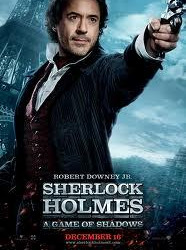
Maybe part of my disappointment this time around is that Benedict Cumberbatch and Jonny Lee Miller do so well as Holmes in their respective versions (Sherlock and Elementary), that Downey simply pales in comparison. I was captivated instantly by Cumberbatch’s performance, and having watched all the episodes of Elementary that have aired thus far, I am almost equally impressed by Miller.
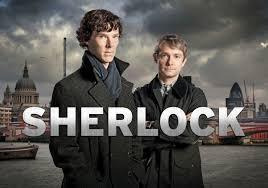
I have been a Holmes fan since I was about 10 or 11 years old. My great aunt gave me a paperback Holmes anthology, which I devoured, and my grandfather and I used to discuss Conan Doyle’s creation after I started reading all of the Holmes stories a couple years later. (Grandpa was a big fan of Basil Rathbone’s Holmes…not my favorite.) In my opinion, Cumberbatch and Miller are carrying on the tradition of Holmes actors splendidly, while Downey is a joke. Just my little soapbox speech for today…
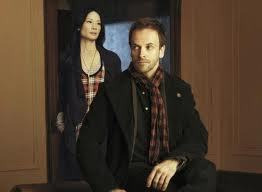
0 notes
Text
Theres just something different about "God, Great Star—I loved you so much!" coming from the man who you (in your power as a celestial being) raised up to the command of a planet and a state close to divinity and whose people you then erased from existence in a misguided attempt to help your immortal granddaughter, the last vestige of your personhood, rebuild your destroyed home planet. Can't put my finger on it
#theres something tremendous to be said about what aa did to subject k and what subject k did to corybantes#sorry. posting about this obscure game for me and only me. kisses#EDIT REALIZED THAT HE CALLS YOU GREAT STAR AGAIN...AFTER CENTURIES OF REFERRING TO YOU AS A DEVIL AND A KILLER. corybantes................
0 notes
Photo
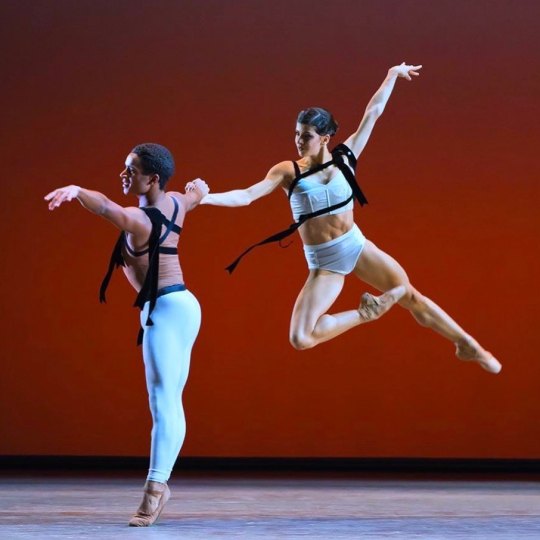
embracetheballet
Marcelino Sambé & Mayara Magri in “ Corybantic Games “.
2 notes
·
View notes
Note
after that other ask I got curious who you see as up and coming male dancers from other companies besides the mariinsky, would you tell us?
Okay! I’m addressing 3 companies: Bolshoi, Royal Ballet, and American Ballet Theatre because those are the ones I pay attention to the most. I’m only going to talk about men in companies who are not principals and have been professional dancers for less than 10 years; I will put which company they are in next to their name. I am going to limit myself to 2 per company. These also are not my favorite dancers, I’m going off of dancers who are getting a lot of opportunities in their company.
1. Jacopo Tissi (Bolshoi leading soloist in company since 2017): he has danced almost every classical role, including Siegfried, Albrecht, Solor, Jean de Brienne, and Nutcracker Prince, as well as many contemporary/neoclassical roles. He has been at the Bolshoi since 2017 and has already danced 13 soloist/principal roles. He has been the chosen partner of Svetlana Zakharova in contemporary projects including her Coco Chanel Modanse project.
2. David Motta Soares (Bolshoi first soloist in the company since 2015): he has danced over 10 principal roles including Basilio, Frantz from Coppelia, Albrecht, the Nutcracker Prince, and Torero in Carmen.
3. William Bracewell (Royal Ballet first soloist, in the company since 2017): it’s pretty rare for a non-principal to dance principal roles at RB however he has danced Siegfried, Nutcracker Prince, Cinderella’s Prince, Franz, Romeo, and Oberon (The Dream). He also was the creator of two roles for RB in “Yugen” and “Corybantic Games”.
4. Reece Clark (Royal Ballet first soloist, in the company since 2013): again, it’s pretty rare for non-principal dancers to dance principal parts at RB and Reece has danced several. These include Prince Florimund in Sleeping Beauty, Nutcracker Prince, Siegfried, Onegin, and Des Grieux (Manon).
5. Aran Bell (American Ballet Theatre soloist, in company since 2017): I would say Aran is the most prominent soloist in the company. He has danced principal roles including Albrecht, Prince Desire in Sleeping Beauty, Nutcracker Prince, Siegfried, and Romeo. The Met season schedule has been taken down, but from what I remember he danced a principal role in every ballet for the upcoming season and was going to debut as Solor in La Bayadere. I could be wrong on that but I think I saw that. I am willing to bet he’s going to be the next principal promotion and that’ll happen sooner rather than later.
6. Joo Won Ahn (American Ballet Theatre soloist, in company since 2014): he is probably the second most prominent soloist after Aran. He has danced principal roles including Solor in La Bayadere, Albrecht (and he was AMAZING, I saw his debut and it was incredible), Nutcracker Prince, and Theme and Variations (which is insanely difficult).
Out of these six, I’ve seen Aran Bell and Joo Won Ahn live and I do think they’re both very good dancers and have awesome careers ahead of them with Joo Won Ahn being my favorite out of the two. As I said, I saw his Albrecht debut and it was incredible. He has beautiful technique, glorious jumps, can partner effectively, and can act so well. He is one of my favorite dancers at ABT. Aran Bell is a good dancer too, definitely more of a refined classical dancer. I saw him as Siegfried and he took a little bit to get his feel for the role so he needs to work on that, but it was only his second performance of the role so it makes sense.
#ballet ask#jacopo tissi#david motta soares#bolshoi ballet#reece clark#william bracewell#royal ballet#aran bell#joo won ahn#american ballet theatre#ballet#Anonymous
6 notes
·
View notes
Text
Day 18 of 30 Days of Apollon
How does this deity stand in terms of gender and sexuality? (historical and/or UPG)
I believe (UPG) that Apollon would as a protector of youth, protect LGBT+ children along with his sister and mother. Considering that his brother Dionysus was considered between genders and his various other siblings, uncles and father have had lovers of both genders I don’t believe that anyone can say he was against it.
Historically (in myths) he had lovers of both genders. His Lovers included:
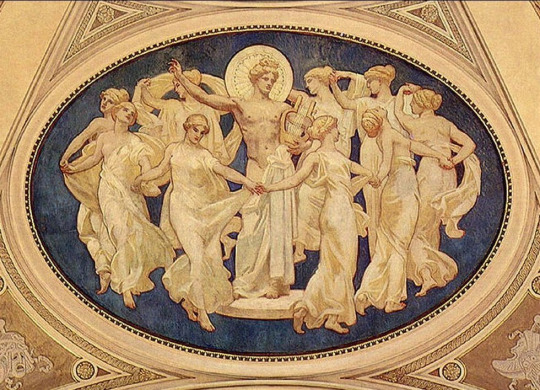
Female lovers
Love affairs ascribed to Apollo are a late development in Greek mythology.[222] Their vivid anecdotal qualities have made some of them favorites of painters since the Renaissance, the result being that they stand out more prominently in the modern imagination.
Daphne was a nymph whose parentage varies. She scorned Apollo's advances and ran away from him. When Apollo chased her in order to persuade her, she changed herself into a laurel tree. According to other versions, she cried for help during the chase, and Gaea helped her by taking her in and placing a laurel tree in her place.[223] According to Roman poet Ovid, the chase was brought about by Cupid, who hit Apollo with golden arrow of love and Daphne with leaden arrow of hatred. The myth explains the origin of the laurel and connection of Apollo with the laurel and its leaves, which his priestess employed at Delphi. The leaves became the symbol of victory and laurel wreaths were given to the victors of the Pythian games.
Apollo is said to have been the lover of all nine Muses, and not being able to choose one of them, decided to remain unwed.[224] He fathered the Corybantes by the Muse Thalia,[225]Orpheus by Calliope, Linus of Thrace by Calliope or Urania and Hymenaios(Hymen) by either Terpsichore or Clio or Calliope.[226]
Cyrene, was a Thessalian princess whom Apollo loved. In her honor, he built the city Cyrene and made her its ruler. She was later granted longevity by Apollo who turned her into a nymph. The couple had two sons, Aristaeus, and Idmon.
Evadne was a nymph daughter of Poseidon and a lover of Apollo. She bore him a son, Iamos. During the time of the childbirth, Apollo sent Eileithyia, the goddess of childbirth to assist her.
Rhoeo, a princess of the island of Naxos was loved by Apollo. Out of affection for her, Apollo turned her sisters into goddesses. On the island Delos she bore Apollo a son named Anius. Not wanting to have the child, she entrusted the infant to Apollo and left. Apollo raised and educated the child on his own.
Ourea, a daughter of Poseidon, fell in love with Apollo when he and Poseidon were serving the Trojan king Laomedon. They both united on the day the walls of Troy were built. She bore to Apollo a son, whom Apollo named Ileus, after the city of his birth, Ilion (Troy). Ileus was very dear to Apollo.[227]
Thero, daughter of Phylas, a maiden as beautiful as the moonbeams, was loved by the radiant Apollo, and she loved him in return. By their union, she became mother of Chaeron, who was famed as "the tamer of horses". He later built the city Chaeronea.[228]
Hyrie or Thyrie was the mother of Cycnus. Apollo turned both the mother and son into swans when they jumped into a lake and tried to kill themselves.[229]
Hecuba was the wife of King Priam of Troy, and Apollo had a son with her named Troilus. An oracle prophesied that Troy would not be defeated as long as Troilus reached the age of twenty alive. He was ambushed and killed by Achilleus, and Apollo avenged his death by killing Achilles. After the sack of Troy, Hecuba was taken to Lycia by Apollo.[230]
Coronis, was daughter of Phlegyas, King of the Lapiths. While pregnant with Asclepius, Coronis fell in love with Ischys, son of Elatus and slept with him. When Apollo found out about her infidelity through his prophetic powers, he sent his sister, Artemis, to kill Coronis. Apollo rescued the baby by cutting open Koronis' belly and gave it to the centaur Chiron to raise.
In Euripides' play Ion, Apollo fathered Ion by Creusa, wife of Xuthus. He used his powers to conceal her pregnancy from her father. Later, when Creusa left Ion to die in the wild, Apollo asked Hermes to save the child and bring him to the oracle at Delphi, where he was raised by a priestess.
Male lovers
Hyacinth or Hyacinthus was one of Apollo's male lovers. He was a Spartan prince, beautiful and athletic. The pair was practicing throwing the discus when a discus thrown by Apollo was blown off course by the jealous Zephyrus and struck Hyacinthus in the head, killing him instantly. Apollo is said to be filled with grief: out of Hyacinthus' blood, Apollo created a flower named after him as a memorial to his death, and his tears stained the flower petals with the interjection αἰαῖ, meaning alas.[231] He was later resurrected and taken to heaven. The festival Hyacinthia was a national celebration of Sparta, which commemorated the death and rebirth of Hyacinthus.
Another male lover was Cyparissus, a descendant of Heracles. Apollo gave him a tame deer as a companion but Cyparissus accidentally killed it with a javelin as it lay asleep in the undergrowth. Cyparissus was so saddened by its death that he asked Apollo to let his tears fall forever. Apollo granted the request by turning him into the Cypress named after him, which was said to be a sad tree because the sap forms droplets like tears on the trunk.
Admetus, the king of Pherae, was also Apollo's lover.[232][233] During his exile, which lasted either for one year or nine years,[234] Apollo served Admetus as a herdsman. Developing a passion for the king there, he herded and fed the cattle, and caused the cows to give birth to twin calves. He would make cheese and serve it to Admetus and was often seen being domestic, causing embarrassment to his family.
Oh how often his sister (Diana) blushed at meeting her brother as he carried a young calf through the fields!....often Latona lamented when she saw her son's disheveled locks which were admired even by Juno, his step-mother...[235]
When Admetus wanted to marry princess Alcestis, Apollo provided a chariot pulled by a lion and a boar he had tamed. This satisfied Alcestis' father and he let Admetus marry his daughter. Further, Apollo saved the king from Artemis' wrath and also convinced the Moirai to postpone Admetus' death once.
Branchus, a shepherd, one day came across Apollo in the woods. Captivated by the god's beauty, he kissed Apollo. Apollo requited his affections and wanting to reward him, bestowed prophetic skills on him. His descendants, the Branchides, were an influential clan of prophets.[236]
Other male lovers of Apollo include:
Adonis, who is said to have been the lover of both Apollo and Aphrodite.[237]
Atymnius,[238] otherwise known as a beloved of Sarpedon
Helenus, the son of Priam and a Trojan Prince, was a lover of Apollo and received from him an ivory bow with which he later wounded Achilles in the hand.[239]
Hippolytus of Sicyon (not the same as Hippolytus, the son of Theseus)[233]
Hymenaios, god of marriage hymns (here, the son of Magnes)[240]
Iapis
Phorbas, the dragon slayer (probably the son of Triopas)[241]
Some of his children such as Orpheus also had lovers of both genders.
I believe (UPG) that Apollon would as a protector of youth, protect LGBT+ children along with his sister and mother. Considering that his brother Dionysus was considered between genders and his various other siblings, uncles and father have had lovers of both genders I don’t believe that anyone can say he was against it.
That said applying sexuality or gender to a God/ess could be a mistake as you are applying human terms on to beings definitely not human, no matter how much they love humanity.
There seems to be a mistaken belief that is floating around that the Hellenic gods champion, patron or are linked to specific sexual identities. Therefore you end up having some members of the LGBT community celebrating certain gods as homosexual deities (examples of this would be Dionysos, Apollon—especially in regards to the Hyakinthos myths, and Artemis, among others), and then you have some heterosexual screaming their heads off that such and such a god isn’t homosexual, and at times even aggressively ignoring the myths (and associated festivals) in which a god appears to be having a homosexual (or in reverse for the other side of the fence…heterosexual) relationship when this was never an issue for the ancient Hellenes. It really is a sign of the modern culture in which we can be so obsessed with sex-identity that we feel a need to *claim* gods as being a part of our own sexual identities.
Yet when it comes right down to it, it doesn’t make sense on either sides of the fence. The gods don’t possesses biological bodies, they don’t possesses chemical hormones, they don’t literally have forms in the way that we think of it….therefore claiming any specific sexual orientation is rather ridiculous. The gods love, they experience attraction through Eros, and the love and union is going to be carried out on a spiritual level. The soul can’t be said to be strictly female or male, for which I think hermaphroditic images is more closely related to our spiritual existance. Truly though when you get right down it to the souls are aligned, in relationship to the gods, with having a receptive nature (therefore being symbolically feminine as we see in the myth of Psykhe) because we desire to receive the union with the gods. Otherwise I must say that we have no spiritual sexual orientation, and we possess many lives in which we may experience life as male or female, and probably a variety of sexual orientations over the course of our lifetimes.
So I would say he is very much for LGBT+ people and he will protect youths (specifically males (cis, trans, etc), while his sister protected female (cis, trans, etc) youths) going through issues pertaining to their gender and sexuality.
#30 days of Apollon#dodekatheism#hellenic polytheism#hellenismos#hellenic pagan#for the love of apollo#for the love of the dodekatheon#ares is great#Hail King Zeus and Queen Hera#hermes is my god#Hades is great too#Hestia is a sweetheart#30 days of deity devotion#30 days of devotion
12 notes
·
View notes
Note
Say, do you think seduction begins in the mind? Or on a more physical level?
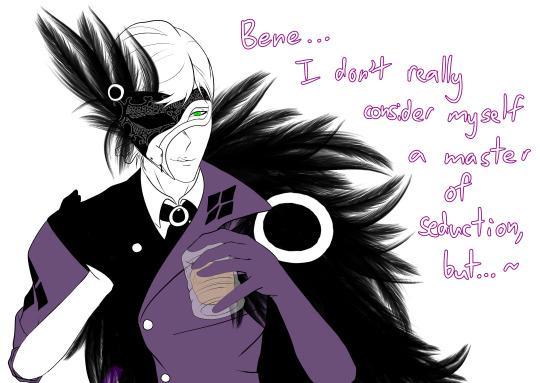
“I think a large part of it depends on the person…Humans are primal, base creatures shackled by corybantic urges, so the masses respond to a pretty face or a hot body…Typical flags for a prime mate. It’s all about psychology, really~ Seduction is just a mind game though, whether or not a physical component is included~”
12 notes
·
View notes
Text
Bernstein Celebration - Yugen; Corybantic Games; The Age of Anxiety [Blu-ray]
Bernstein Celebration – Yugen; Corybantic Games; The Age of Anxiety [Blu-ray]
Price: (as of – Details)
The Royal Ballet celebrates the centenary of Leonard Bernsteins birth with this all-Bernstein collection. The Companys three associate choreographers respond to the varied styles of Bernsteins music in ballets that are lyrical, beautiful, exuberant and moving. Wayne McGregors Yugen is set to Chichester Psalms. In The Age of Anxiety Liam Scarlett responds to Bernsteins…
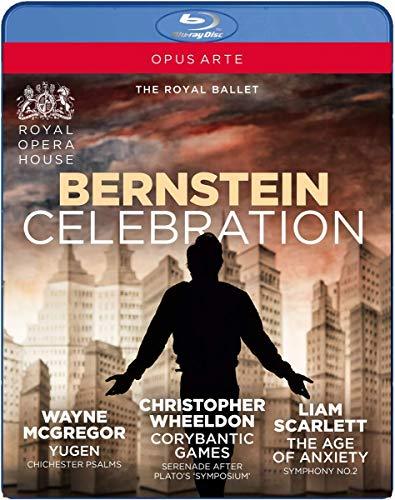
View On WordPress
0 notes
Text



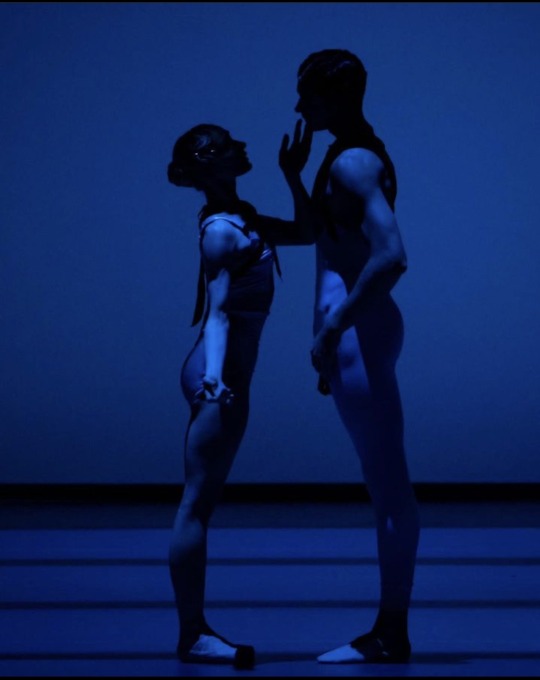

Melissa Hamilton, Reece Clark
Corybantic Games
photo Andrej Uspenski
52 notes
·
View notes
Video
youtube
Erdem Moralioglu on designing costumes for The Royal Ballet
Award-winning fashion designer Erdem Moralioglu created the costume designs for Christopher Wheeldon's new work Corybantic Games. In this short film he talks about collaborating with the choreographer and the challenges of designing for dance.
12 notes
·
View notes
Text
Corybantic Games. Matthew Ball. ©ROH, 2018. Photographed by Andrej Uspenski
Kevin O’Hare, Director of The Royal Ballet, has announced that Matthew Ball has been promoted to Principal Dancer. He said,
I’m delighted that Matthew Ball will be a Principal dancer from the start of the 2018/19 Season. He has had a tremendous year with very exciting debuts in both classical and contemporary ballets across the repertory as well as creating roles in the new works. It is wonderful that Matthew has achieved so much since he joined the Company from The Royal Ballet School and I eagerly look forward to watching this next chapter of his career.
O’Hare also made the following promotions within the Company:
Obsidian Tear. William Bracewell. ©ROH, 2018. Photographed by Tristram Kenton
The Ilustrated ‘Farewell’. Mayara Magri. ©ROH, 2017. Photo by Tristram Kenton.
Corybantic Games. Tierney Heap. ©ROH, 2018. Photographed by Andrej Uspenski
Giselle. Fumi Kaneko as Queen of the Wilis. ©ROH, 2018. Photographed by Helen Maybanks
William Bracewell, Tierney Heap, Fumi Kaneko, and Mayara Magri are promoted to First Soloist.
Obsidian Tear. Calvin Richardson. ©ROH, 2016. Photographed by Bill Cooper
Giselle. Téo Dubreuil and David Donnelly in the Pas de Six. ©ROH, 2018. Photographed by Helen Maybanks
Obsidian Tear. Benjamin Ella and Joseph Sissens. ©ROH, 2018. Photographed by Tristram Kenton
Calvin Richardson has been promoted to Soloist.
Téo Dubreuil and Joseph Sissens are promoted to First Artist.
Stanisław Węgrzyn, who was Prix de Lausanne dancer for the 2017/18 Season, becomes an Artist.
Sae Maeda, Nadia Mullova-Barley, Joonhyuk Jun, Joshua Junker and Aiden O’Brien also become Artists, after joining the Company at the start of the last Season as Aud Jebsen Young Dancers, a programme which provides recently graduated dancers a year’s contract to work and perform alongside the corps de ballet of The Royal Ballet while receiving mentoring and coaching.
Details of leavers and joiners will be announced at the end of the season.
Giselle. Matthew Ball as Albrecht and Artists of The Royal Ballet. Giselle. ©ROH, 2018. Photographed by Helen Maybanks
Giselle. Matthew Ball as Albrecht. ©ROH, 2018. Photographed by Bill Cooper
Obsidian Tear. Matthew Ball. ©ROH, 2016. Photographed by Bill Cooper
Romeo & Juliet. Matthew Ball as Romeo, Yasmine Naghdi as Juliet ©ROH, 2015. Photographed by Alice Pennefather
Matthew Bourne’s Swan Lake. Matthew Ball as ‘The Swan’. Photo by Johan Persson
Matthew Ball
Born in Liverpool, Matthew Ball joined the Company in 2013 after training at The Royal Ballet School.
His repertory with the Company includes Albrecht (Giselle), The Prince (The Nutcracker), Prince Florimund (The Sleeping Beauty), Prince Siegfried (Swan Lake), Armand (Marguerite and Armand), Lensky (Onegin) and Romeo (Romeo and Juliet). His contemporary work includes Obsidian Tear, Woolf Works and Yugen by Wayne McGregor, Corybantic Games by Christopher Wheeldon and Symphonic Dances by
Liam Scarlett. Matthew’s first major role as a Principal will be in La Bayadère as Solor. He will feature in Alastair Marriott’s new work, The Unknown Soldier, which premieres on Tuesday 20 November and commemorates the centenary of the end of the First World War.
In December, he will perform with Matthew Bourne’s New Adventures at Sadler’s Wells, dancing the role of The Swan in Swan Lake.
The Royal Ballet promotions for 2018/19 season: Matthew Ball has been promoted to Principal dancer Kevin O’Hare, Director of The Royal Ballet, has announced that Matthew Ball has been promoted to…
1 note
·
View note
Text
Welcome to the NEW (simpler) Baker Street Babble!
Baker Street Babble has lived on Weebly since I created it in 2014. I haven't really liked Weebly as a platform for the past few years, and so the blog has fallen by the wayside over the past year, for the most part.
Now that I've created Corybanter.com as a hub for all of my various blogs, I thought it might be nice to revive Baker Street Babble, but in a new, simpler format. So I'm trying out this new home for BBB here on Tumblr. I've used Tumblr off and on for many years now, ever since I started the original Corybanter blog back in 2009.
We'll have to see how things go, but for right now...
The game's afoot!
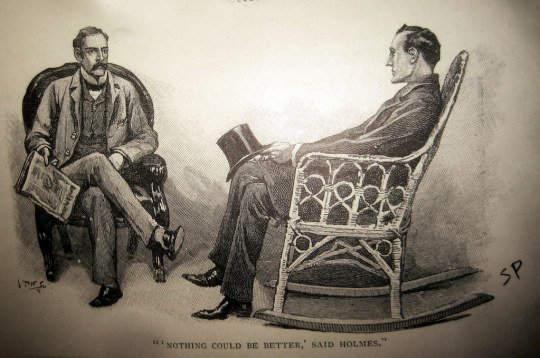
0 notes
Photo

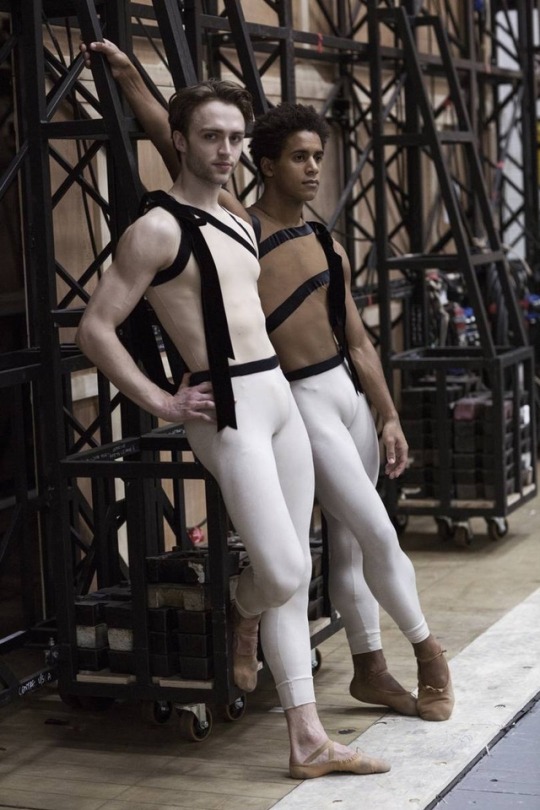
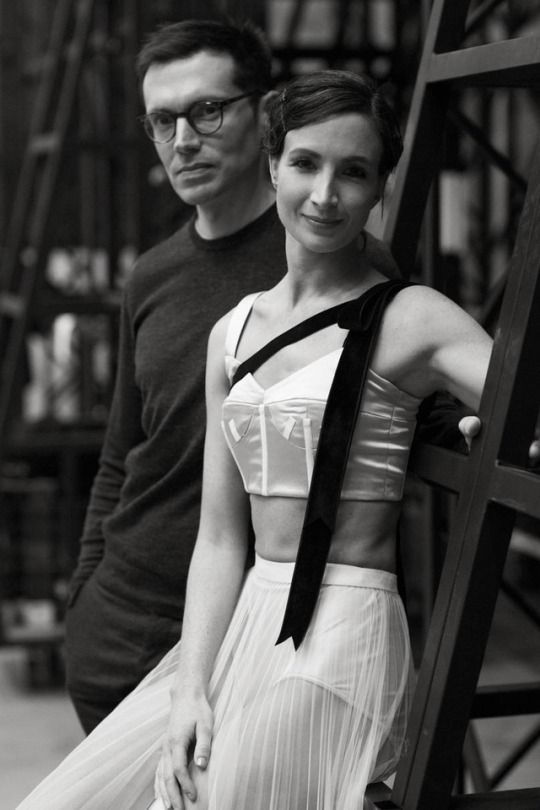
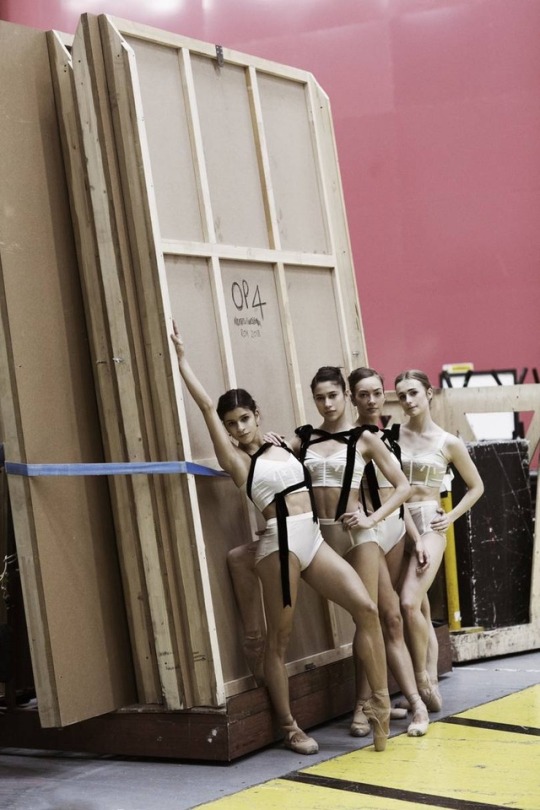
Fashion designer Erdem designs costumes for Christopher Wheeldon’s latest new work Corybantic Games on the Royal Ballet pictures from British Vogue
#erdem#dance#fashion#royalballet#Design#Britishvogue vogue#royaloperahouse#balletdancers#christopherwheeldon#leonard bernstein
3 notes
·
View notes
Link
WN: Mr. Chesterton, did you not support the creation of an independent Jewish state?
GKC: Yes, I did.
WN: I agree that the Jewish people should have a homeland. But, white people should have a homeland
too …
GKC: One moment. You’re conflating two different things. “Jewish” is an ethnicity. A real national
identity. “White” is a racial term. White is a linguistic construct.
WN: No it’s not. It’s a genetic reality.
GKC: Are the Irish white?
WN: Yes. Of course.
GKC: Are Jews white?
WN: Well, that depends on who you ask. Genetically, they are. But, they have a distinct ethnic identity …
GKC: As do the Irish, the Italians, the French, the English, the Polish, the Russians, the Romanians,the Estonians, the Scots, the Dutch …
WN: No. They are bound together as members of a greater white world. They have similar genetics and a common identity and all of those people can look at one another and know they are white in the same way a black man from Morocco can look at a black South African and feel a similar kinship.
GKC: There have been countless times the English and French have looked each other in the eye and tried to kill one another. Haven’t you read any European history? Or any Shakespeare? Henry V centers on the battle at Agincourt where the English slaughtered the French. Shortly after I died, there was a Second World War where the English fought the Germans. England, France, and Germany are different nations with different peoples and different cultures.
WN: What matters is that they are white. If you flood France with Moroccans, it won’t be France any more.
GKC: If you flood France with Englishmen, it won’t be France anymore.
WN: Would you rather live in a mono-racial country or a multi-racial country?
GKC: I’d prefer to live in a Christian country.
WN: No. Suspend God for a moment …
GKC: It’s hard to suspend someone who is omnipotent.
WN: Imagine God doesn’t exist …
GKC: To imagine creation without a creator is impossible. You might as well say “Imagine a detailed painting that was painted by no one,” or “imagine a builder-less building.” Everything man thinks is referential to existence, and existence is logical. Even in the most corybantic parts of man’s imagination, two and two still make four. He cannot imagine two and two making five. To ask me to imagine a creator-less creation is to ask me to imagine two and two making five. This is something I cannot do. A musician named Lennon once said, “Imagine there’s no heaven. It’s easy if you try.” I’ve tried. It’s not easy.
WN: All right! Fine! All things being equal, would you rather live in a mono-racial country or a multi-racial country?
GKC: I’d rather live in my home, England.
WN: Why?
GKC: I love my home.
WN: Why?
GKC: Because it’s mine.
WN: Why is it yours?
GKC: I was born there. I lived there. I’d die for it. And, I did what I could to preserve its culture.
WN: By “culture”, you mean whiteness.
GKC: No. “By culture”… I mean culture.
WN: But race dictates culture.
GKC: France, Germany, and England all have different cultures, but they also have what you would call the same race.
WN: But French culture is much closer to English culture, than say Chinese.
GKC: Yes. That is true.
WN: And race accounts for the significant cultural difference.
GKC: Not so. “If the Church had not entered the world then, it seems probable that Europe would be now very much what Asia is now. Something may be allowed for a real difference of race and environment … But after all we talk about the changeless East very largely because it has not suffered the great change.” The Cross. (“The Escape from Paganism,” The Everlasting Man)
WN: What did the cross change in the West that set it apart from the East?
GKC: Tone and proportion. If the cross hadn’t happened “the tone and proportion of all these things, and especially the proportion of good and evil things, would be in the unchanged West what they are in the changeless East.” (“The Escape from Paganism”)
WN: Even if there is truth to that, you cannot have culture without race.
GKC: No. You cannot have culture without cult. The faith is what matters. Especially when comparing the eternal east with the young west.
WN: Just think of England. The people speak a common language, they dress a certain way, they celebrate certain holidays, and they have certain heroes who are all white. England is white.
GKC: No. England is English.
WN: And “English” means white.
GKC: “Mere jingo self-contentment is commonest among those who have some pedantic reason for their patriotism. The worst jingoes do not love England, but a theory of England. If we love England for being an empire, we may overrate the success with which she [ruled India]. But if we love it only for being a nation, we can face all events: for it would be a nation even if [India] ruled us.” (“The Flag of the World,” Orthodoxy)
WN: This is completely unreasonable.
GKC: That’s the point. We love things without a reason. Love is unreasonable.
WN: This is not natural.
GKC: Nay, it is supernatural! Glad we could find common ground!
WN: Okay. Look here, mono-racial places are less violent than multi-racial places. It’s that simple …
GKC: Is it? Haiti is almost completely mono-racial. Would you rather live in Manhattan or Haiti? Bosnia is mono-racial. How’d you like to live there?
WN: You’re picking outliers. You’re not addressing the larger question. Are people products of nature or nurture? I say nature.
GKC: Do you believe it is ethical to judge a man based on the color of his skin?
WN: (looking defiantly at Chesterton) I think it is practical and we all do it.
GKC: Why is it practical?
WN: Because man is largely a product of his genetics. Environment does enter the picture, but to a much lesser extent.
GKC: A great statesman came about in the United States long after I died. He said, “We ought to judge a man by the content of his character and not by the color of his skin.” He was a Protestant but that sentiment is especially Catholic. It presupposes free will. The reason it is bad to judge a man by his race is because he has free will. And so, we should assess him by the things he chooses to do and the philosophy he holds …
WN: All right. But, when you’re walking down the street at night, you don’t have the approaching stranger’s history or record at hand.
GKC: But, is it good or evil to judge him based on the color of his skin?
WN: It is practical.
GKC: Not what I asked.
WN: We need to move beyond good and evil.
GKC: (Chuckling) Oh, not Nietzsche …
WN: Yes, Nietzsche! He was a bold and strong thinker.
GKC: “No one will deny that he was a poetical and suggestive thinker; but he was quite the reverse of strong. He was not at all bold. He never put his own meaning before himself in bald abstract words: as did Aristotle and Calvin, and even Karl Marx, the hard, fearless men of thought. Nietzsche always escaped a question by a physical metaphor, like a cheery minor poet.” (“The Eternal Revolution,” Orthodoxy)
WN: How so? Give me an example.
GKC: “He said, ‘beyond good and evil,’ because he had not the courage to say, “more good than good and evil,” or, ‘more evil than good and evil.’ Had he faced his thought without metaphors, he would have seen that it was nonsense.” (“The Eternal Revolution”)
WN: (laughing heartily) This is peak Christian Universalism. It is adorable!
GKC: But, is it good or evil?
WN: We must move beyond good and evil.
GKC: What is good? And, why is good so good?
WN: These are semantical word games. They mean nothing.
GKC: Would you say they are “good” semantical word games?
WN: You play with words while your people, white people, face extinction.
GKC: What do you mean?
WN: I mean there is a white genocide. White people are being outbred and outnumbered in their own countries.
GKC: You call this a genocide?
WN: Yes!
GKC: And, you want to stop it?
WN: Yes!
GKC: Why?
WN: As a white man, I have interests. As a people, the whites have interests.
GKC: Do all races have interests?
WN: Of course.
GKC: Should the interests of all races be respected?
WN: All indigenous peoples should be respected. All peoples should have a homeland.
GKC: If I were to say that I don’t respect the interests of your people … furthermore, if I were to support the elimination of “your people”…
WN: That would be evil, because…
GKC: Evil! We move beyond it, and back towards it.
WN: I misspoke. I believe it would be against my interests.
GKC: If I were a black man from Morocco, should I respect your group’s interests?
WN: What is your point?
GKC: My point is, you have an ethos. You haven’t progressed, or regressed, or run past, or jumped over, or walked by, or … moved beyond good and evil.
WN: Oh no. I’m not making an appeal to ethics; I’m making an appeal to strength. The “other” won’t accept your ethics. The barbarians at the gate do not care about your logic and abstract arguments. All they know is that you are not them. They don’t know that you’re Catholic or smart or witty. They know that you’re a fat old white man. And, they know you’re the “other” and you are a potential threat. The question is, who has the whip hand? The majority does. In a democracy, the majority has the votes and thus the political power. We need to maintain our strength. We need to be a majority where we live.
GKC: Why?
WN: I do not want to live as a minority.
GKC: Why not?
WN: Historically, being a racial minority is very difficult. You get oppressed, ostracized, discriminated against, and treated unfairly.
GKC: By whom?
WN: The majority. The majority always holds the whip hand over the minority. The question is: which are you? It’s not a matter of good or bad, right or wrong. It’s a matter of strength. “History is a slaughter bench,” as Nietzsche said. Will you be the one getting slaughtered, or the one doing the slaughtering? The hordes of dark peoples coming to England do not understand logical arguments, they understand strength.
GKC: Most people don’t understand logical arguments. Most French and Germans don’t …
WN: They are still our people. They are white.
GKC: No. They’re French and German.
WN: Not to a black African. He looks at them and only sees white people.
GKC: (Rolling his eyes) What did the French see when they looked across the field at the English soldiers at Agincourt? White brethren … who wanted to kill them?
WN: (Ignoring GKC) When all institutions have broken down, when the state has fallen, and men are left to their own devices … What side does he take? He takes his own side, he sides with his own kind, other blacks. What binds men together and creates order in a country?
GKC: The Holy. A sense of the sacred and divine.
WN: No. Race. Men of the same race reach an understanding: “I won’t hit you, if you won’t hit me.” You can’t have that social compact in a multi-racial society. And, that agreement is how morality began …
GKC: “Morality did not begin by one man saying to another, ‘I will not hit you if you do not hit me’; there is no trace of such a transaction. There is a trace of both men having said, ‘We must not hit each other in the holy place.’ They gained their morality by guarding their religion.” (“The Flag of the World,” Orthodoxy)
WN: What is your point?
GKC: Communities need a sense of the divine in order to have a true sense of place. Biological differences exist among all men, but when earnestly contemplating the divine all men are brought to the same level, to their knees. When we contemplate the final judgment, these biological differences melt away and we realize that “the mere man on two legs, as such, should be felt as something more heartbreaking than any music and more startling than any caricature.” (“Ethics of Elfland,” Orthodoxy)
WN: But, in matters of life and death, people don’t think that way. They run to their racial brothers and sisters.
GKC: Are you sure? Consider America: when a natural disaster strikes, Americans aid those in their nearest vicinity and then they aid others farther off. First their families, then their neighbors, and then others in their town. Americans understand that “Death is more tragic, even than death by starvation.” (“Ethics of Elfland,” Orthodoxy) Watch when a hurricane hits. You won’t see racial tribalism. You’ll see something closer to subsidiarity. They love their home simply because it is theirs and they’ve always been a religious people. They don’t have ‘blood and soil,’ but soil and soul. The Americans don’t have a sense of race, they have a sense of place.
44 notes
·
View notes